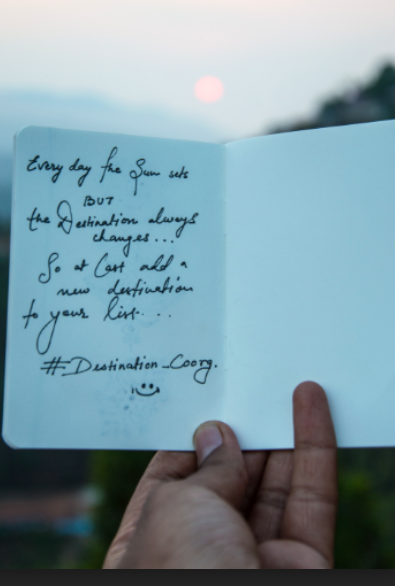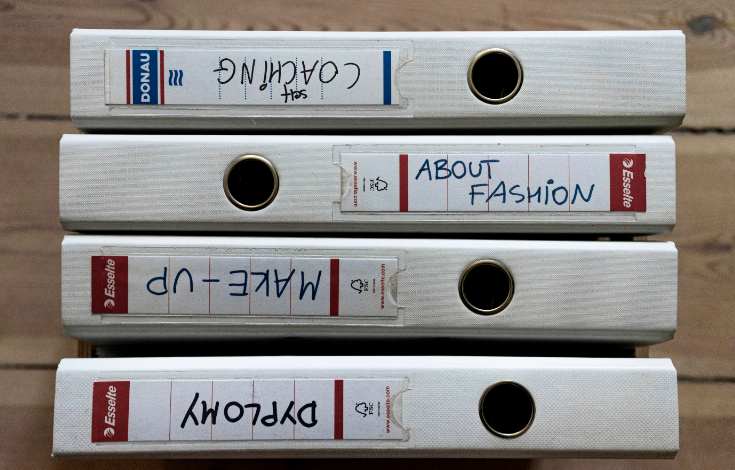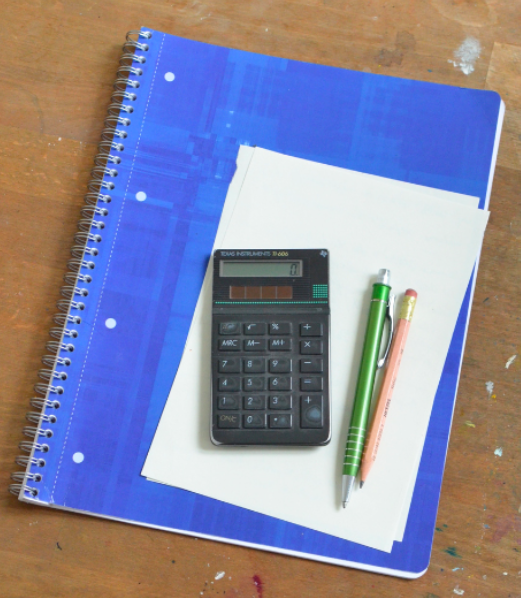Jill Katz
One to Zen Organizing
February 18, 2021
Most people dread tackling paper clutter. But I love it! Not my own papers, of course. But I enjoy looking at YOUR papers and figuring out how to solve your paper puzzle. I get childishly excited when your eyes register a clarity about paper, and I have successfully communicated the “hows'' and “whys” of paper clutter. And I relish your sigh of relief when you realize you now have control over your piles. Mission accomplished!
I like using the term “Paper Trail” to talk about the process of tracking your papers and the path they take through your house. No, this process has no relation to tax audits (although serious clutter can lead to that) I am talking about how papers enter your house through the mail, your work bag, or your kids backpack. Pages are printed or notes and doodles are created at home. And then where do they go? What happens to them?
As an organizer, I walk into your home with my eagle eye and visually assess all the paper. I make a mental note of the types of paper in your house and then attack each category.
Here is an organizer’s view, my view, of the “Paper Trail,” including the signs you have a problem and the potential solutions.

Mail
Mail is the primary way paper enters the house. I often encounter three mail issues. Some households put off opening their mail. The second thing that trips people up is filing. People are unsure of which papers they need to keep, and so many documents that can be thrown out end up in a pile. Finally, I see many people puzzling over paper that requires follow-up. I like to call them “To Do” items. People don’t have time to deal with an item when opened, so that mail gets tossed in a pile and, ultimately, buried.
The signs: Envelopes all over the place, piles of mail near the door, piles of mail on a kitchen or dining room table
What I do:
-
First I will follow your mail paper trail to get to the root of the problem. Where do you receive your mail? Where do you open it? What do you do with it once opened?
-
If receiving and opening your mail isn’t the problem then I will dig deeper. Do you have trouble identifying and recycling “junk mail”? Do you need to shred a huge pile of paper with personal information? Are you getting stuck with filing or “To Do”/follow-up items?
-
Once I identify the problem, we will establish a good mail routine. We will also choose an area for mail that needs to be filed or stored and will discuss how you make the decision to file something.
-
FInally, we will establish a system for mail that is a “To Do” and needs follow up. For example, putting a sticky note on a wedding invitation, and writing the next step (“Check Calendar”or “Purchase A Gift”). Finally, the system must also include scheduling time to carry out what the sticky note dictates.
 Magazines/Catalogs
Magazines/Catalogs
Magazines and catalogs are fun! But people only have a limited amount of time to read them. If you receive more than 2 magazine subscriptions a month, consider unsubscribing to some of them. Otherwise, unread magazines pile up along with a sense of guilt. I can’t tell you how often I hear people exclaim “I really should catch up on my magazine reading.” The other issue: keeping magazines forever. Most houses don’t have the space to turn a room into a magazine library, so be prepared to throw out your magazines after a limited amount of time.
The signs: Piles of magazines in the bedroom, in various rooms on the floor, taking up space in a overloaded bookshelf
What I do:
-
When I see many magazines lying around, I will ask you to list all your subscriptions including how often they are delivered.
-
I will add up the number of magazines you receive a year so you can understand the entire picture.
-
We will then come up with a plan for where to place the magazines in the month they are received (by the door, on a coffee table) and what you would like to do with the magazines after a month and/or once they are read.
-
Solutions might include reducing the number of subscriptions, storing important info from an article by tearing it out and filing it, inputting info in a digital file or binder, or even bookmarking an item on your computer.

Files
People are so different! I run into clients that want to file everything “just in case,” and I have other clients who would prefer to get rid of everything. The biggest issue with filing is that people are unsure what to file and so they throw items in a pile instead of filing or trashing them.
The Signs:
What I do:
-
First I will give you this list and we will discuss what items are important to file and which papers are unnecessary.
-
Then I will go through your filing cabinets and we will structure a filing system that makes sense for you. You should be storing only necessary documents, and they should be easy to find and access when needed.
-
We will also discuss whether some items should be scanned and stored on your computer, accessed through an account, or tracked on a spreadsheet in order to limit paper, with the understanding that each person has a different comfort level with digitizing.
 Sentimental items
Sentimental items
This could easily be its own blog post (or several). Sentimental items are tricky because they are connected with strong feelings and needs.
The Signs:
What I do:
-
First, we will put “like with like” - All cards should be put in one box, all artwork together, all photos together
-
Then we will determine what to keep: I believe that: “If everything is special, then nothing is special.” You must differentiate which cards, photos, or artwork are worth keeping. This is difficult but we organizers have some tricks up our sleeves to make it easier for you.
-
Finally, we will determine what you would like to do with these items: You could store them or display them, for example, or take a picture of them and upload them to a digital photo frame.
-
Whatever path you take with each item, by the end of our time you will have a system in place for handling each future card, photo, or kid’s masterpiece .
 Information on paper (recipes, trip ideas, craft ideas, movie ideas)
Information on paper (recipes, trip ideas, craft ideas, movie ideas)
What do you do when you are on your computer and see a great tip, recipe or trip idea? For many people, the answer is to print out the webpage-- If you are in this group, you know who you are. You may also tear out pages from magazines, and keep the instructions and manuals that come with every product you buy. You will also keep information from old courses “in case you need it.”
The Signs: Tons of printed papers, articles torn from magazines, information about products, many binders or files with different categories of information
What I do:
-
First I establish what categories matter to you (ex. Recipes, Crafts, Professional Info, etc.)
-
Then we discuss your level of comfort with accessing data online versus in print
-
Together, we will reduce the amount of items that you print or earmark based on how important it is to you and how comfortable you feel going digital in that category
-
Finally, we will establish rules to help you decide what information is worth keeping and how you will store it (ex. binders, Evernote, Goodreads.com, Pinterest, online spreadsheet).
 Kids Schoolwork
Kids Schoolwork
Pre-COVID, kids would come home from school with many pieces of paper including school work, school announcements, forms and artwork. And unless you have a system for handling all this paper, it will end up in various paper piles.
The Signs: Old notebooks, binder and folders filled with classwork stowed in closets or on shelves. A refrigerator that looks like a warzone with old artwork and tests with “100” marks remaining for months.
What I do:
-
First I put “like with like”: old classwork in 1 bin, artwork in 2nd bin and “to do” items like signatures for a field trip in a third bin.
-
Then we discuss systems for each category moving forward. For example, every month your older child will review all his/her papers, toss those not needed and place other classwork in a large binder for future reference (midterms/finals). At the end of the year, he/she will need to go through every notebook and toss most of the work keeping a few beloved projects.
-
Now that we have a plan, we can declutter the bins in front of us according to his new system.
 Notes
Notes
Are you the type of person that has many ideas throughout the day? Or perhaps you write the details of a phone call on the closest scrap of paper, be it a notepad, napkin or post-it. If so, you might find your space scattered with pieces of information which is very overwhelming.
The signs: Post-its all over the house, Multiple notepads with phone numbers and ideas scribbled on them, pieces of paper on every surface and in drawers with lists, names and phone numbers.
What I do:
-
First I point out that you need one centralized place to take notes so you can find them
-
Then we strategize a note taking system where you can use one or 2 planners or large notepads so you can keep track of your daily notes
-
Finally, we discuss forming habits for transferring the information on those notes. For example, at the end of the day, you can input all names/phone numbers into your phone’s list of contacts or into your list of email contacts. You can also schedule any follow up tasks into your physical or virtual calendar. You can capture an idea by starting a new project page on your computer.
FOLLOW UP:
So now you know how a Professional Organizer like me dives into your paper clutter.
And after I am done, I will always write up our new system so you can review, practice and evaluate how it is working. If the piles go away, then success! If you experience paper creep then we tweak your system so it works for you.
For more information, contact Jill Katz at
Jill@onetozenorganizing.com